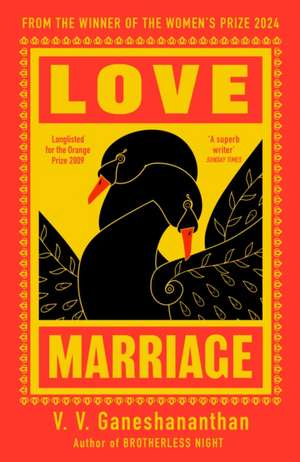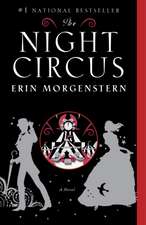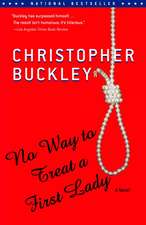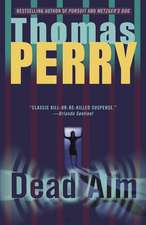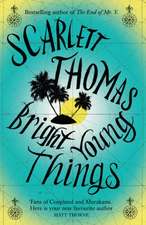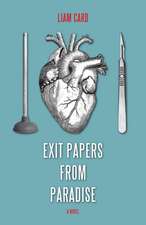Love Marriage
Autor V. V. Ganeshananthanen Limba Engleză Paperback – 5 sep 2024
| Toate formatele și edițiile | Preț | Express |
|---|---|---|
| Paperback (2) | 52.95 lei 3-5 săpt. | +26.14 lei 10-14 zile |
| Orion Publishing Group – 5 sep 2024 | 52.95 lei 3-5 săpt. | +26.14 lei 10-14 zile |
| Random House Trade – 31 mar 2008 | 122.57 lei 6-8 săpt. | +62.74 lei 10-14 zile |
Preț: 52.95 lei
Preț vechi: 69.70 lei
-24% Nou
Puncte Express: 79
Preț estimativ în valută:
10.13€ • 10.52$ • 8.45£
10.13€ • 10.52$ • 8.45£
Carte disponibilă
Livrare economică 01-15 martie
Livrare express 18-22 februarie pentru 36.13 lei
Preluare comenzi: 021 569.72.76
Specificații
ISBN-13: 9781399628945
ISBN-10: 1399628941
Pagini: 320
Dimensiuni: 128 x 196 x 24 mm
Greutate: 0.23 kg
Editura: Orion Publishing Group
ISBN-10: 1399628941
Pagini: 320
Dimensiuni: 128 x 196 x 24 mm
Greutate: 0.23 kg
Editura: Orion Publishing Group
Extras
Chapter 1
In this globe-scattered Sri Lankan family, we speak only of two kinds of marriage. The first is the Arranged Marriage. The second is the Love Marriage. In reality, there is a whole spectrum in between, but most of us spend years running away from the first toward the second.
Among the categories that bleed outside these two carefully delineated boundaries: the Self-Arranged Marriage, the Outside Marriage, the Cousin Marriage, the Village Marriage, the Marriage Abroad. There is the Marriage Without Consent. There is the Marriage Under Pressure. There is even Marrying the Enemy, who, it turns out, is not an Enemy at all.
You cannot go unfettered into a family’s history if you are one of them. The nature of certain unions will be hidden from you, rephrased to you, the subject dropped, the music changed. There is Proper Marriage; there is Improper Marriage. This Tamil family speaks of the latter in whispers.
The rule is that all families begin with a marriage. And the other way around.
You don’t marry a person, my father says to no one in particular. You marry a family.
The Self-Arranged Marriage: my father has married my mother’s family so successfully that he now fits into it as well as—if not better than—he fits into his own. My mother is an Aravindran and, further back than that, a Vairavan, which means that the members of her family—especially her siblings—are nosy, noisy, close, and concerned with domestic comforts. Years after they stopped living where they had always lived, in a small house in the village of Urelu, in the town of Jaffna, they remain connected by telephone lines and carefully written aerograms. They never forget birthdays, favorite curries, or unkindnesses. They were once three but are now two. My father loves my mother’s family, and in return for that they draw him in. They have forgotten that when he wanted to marry my mother they circled around her protectively from the far corners of the globe, opposed to her marrying a man they had never even met. They only remember that she has a happy life in a country far safer than the one in which she was born.
And twenty-five years after their wedding, my parents like to give the impression that their marriage was Arranged, because they are both very Proper. But their secret is out: they fell in love. Those who are watching can see how in certain moments they become each other. This has been their way of falling in love: the acquisition of each other’s habits, mannerisms, preferences, and witticisms. They have built a wall around their two-ness, and each brick laid in place is a secret that only they share, or perhaps an exception one has made for the other. They have become an example of how you can Have Your Love and Eat It Too. They let everyone think that they took no responsibility for the way they came together. They engaged in all the dances of manners and the ceremonies involved in a Traditional Marriage, which is to say, an Arranged Marriage. This, they say, is not a romance. It begins with an introduction, a handshake, which is not the custom of the East but has become the greeting of the West. The touching of fingers is a strange, luscious intimacy, a preface to the story.
These two, my parents, have not acknowledged their secret—perhaps not even to each other. And they have exchanged rings and vows and hearts without eliciting the frowns that Improper Marriages frequently do.
In this globe-scattered Sri Lankan family, we speak only of two kinds of marriage. The first is the Arranged Marriage. The second is the Love Marriage. In reality, there is a whole spectrum in between, but most of us spend years running away from the first toward the second.
Among the categories that bleed outside these two carefully delineated boundaries: the Self-Arranged Marriage, the Outside Marriage, the Cousin Marriage, the Village Marriage, the Marriage Abroad. There is the Marriage Without Consent. There is the Marriage Under Pressure. There is even Marrying the Enemy, who, it turns out, is not an Enemy at all.
You cannot go unfettered into a family’s history if you are one of them. The nature of certain unions will be hidden from you, rephrased to you, the subject dropped, the music changed. There is Proper Marriage; there is Improper Marriage. This Tamil family speaks of the latter in whispers.
The rule is that all families begin with a marriage. And the other way around.
You don’t marry a person, my father says to no one in particular. You marry a family.
The Self-Arranged Marriage: my father has married my mother’s family so successfully that he now fits into it as well as—if not better than—he fits into his own. My mother is an Aravindran and, further back than that, a Vairavan, which means that the members of her family—especially her siblings—are nosy, noisy, close, and concerned with domestic comforts. Years after they stopped living where they had always lived, in a small house in the village of Urelu, in the town of Jaffna, they remain connected by telephone lines and carefully written aerograms. They never forget birthdays, favorite curries, or unkindnesses. They were once three but are now two. My father loves my mother’s family, and in return for that they draw him in. They have forgotten that when he wanted to marry my mother they circled around her protectively from the far corners of the globe, opposed to her marrying a man they had never even met. They only remember that she has a happy life in a country far safer than the one in which she was born.
And twenty-five years after their wedding, my parents like to give the impression that their marriage was Arranged, because they are both very Proper. But their secret is out: they fell in love. Those who are watching can see how in certain moments they become each other. This has been their way of falling in love: the acquisition of each other’s habits, mannerisms, preferences, and witticisms. They have built a wall around their two-ness, and each brick laid in place is a secret that only they share, or perhaps an exception one has made for the other. They have become an example of how you can Have Your Love and Eat It Too. They let everyone think that they took no responsibility for the way they came together. They engaged in all the dances of manners and the ceremonies involved in a Traditional Marriage, which is to say, an Arranged Marriage. This, they say, is not a romance. It begins with an introduction, a handshake, which is not the custom of the East but has become the greeting of the West. The touching of fingers is a strange, luscious intimacy, a preface to the story.
These two, my parents, have not acknowledged their secret—perhaps not even to each other. And they have exchanged rings and vows and hearts without eliciting the frowns that Improper Marriages frequently do.
